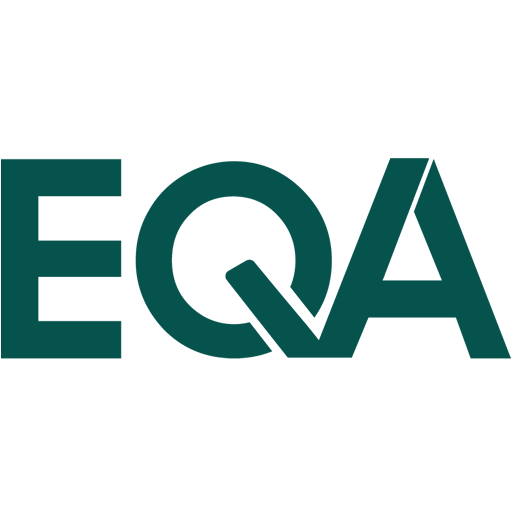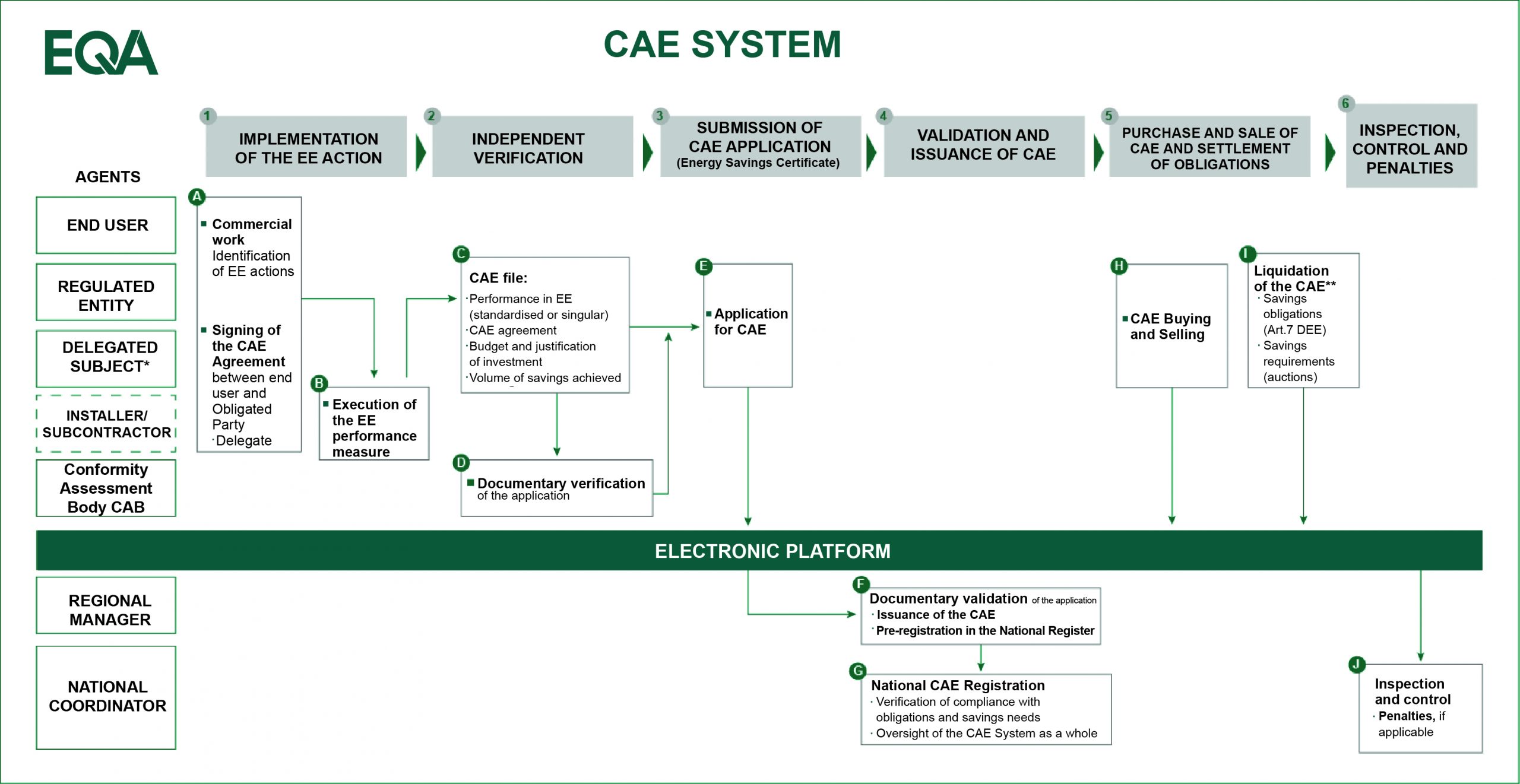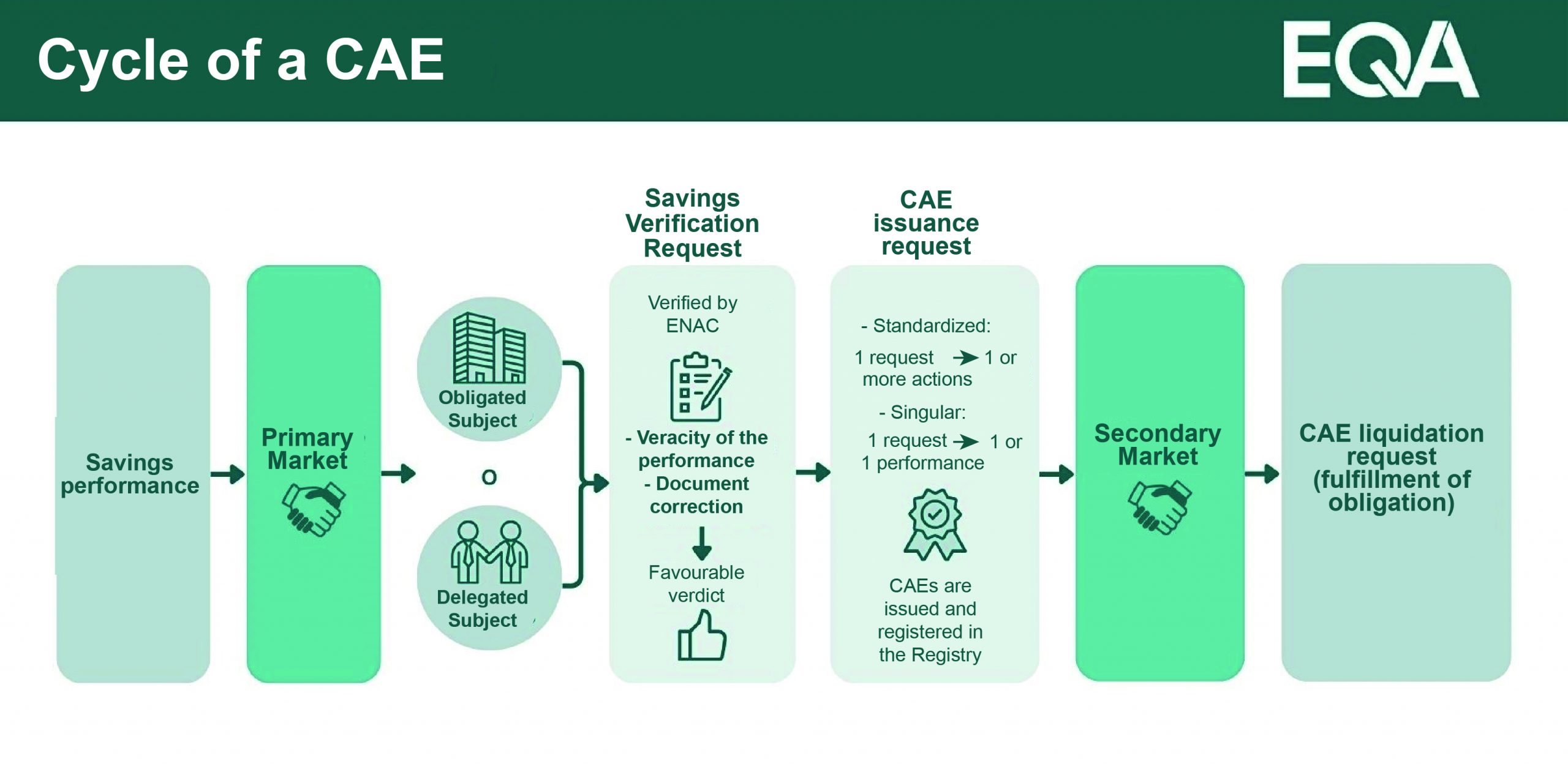
ESC Verification – Energy Savings Certificate
The ESC is a document, equivalent to 1kwh, that reflects the savings in final energy consumption recognized because of the investments made in energy saving actions over 12 months from the implementation of said action. It is a movable asset, which after its registration as an ESC by a Delegated or Obligated Subject, can be subject to purchase and sale or liquidation.
The ESCs can be settled against the energy efficiency obligations of the obligated subjects, to offset the corresponding contribution to the FNEE.
ESC-generating actions – ESC Certificate
The actions intended to generate ESC would be any action that generates savings in any sector.
For the calculation of ESC of replicable and habitual actions (standardized measures), some sheets have been published in a Catalog, which establish in a simple way the calculation of the same and the documentation to be provided. (Order TED/845/2023, of July 18, approving the catalog of standardized energy efficiency measures).
The rest of the actions generating ESC are considered singular actions and will have an individualized ESC calculation method for each of them.
ESC Verification
The ESCs generated by a certain savings action must be VERIFIED by an energy savings verifier accredited by the National Accreditation Entity (ENAC) in order to be registered in the ESC System.
Temporarily, between July 2023 and July 2024, those legal entities that, having requested accreditation from ENAC to act as energy savings verifiers, do not yet have said accreditation, may act as energy savings verifiers if they are accredited to carry out verification and validation activities in accordance with the UNE-EN ISO 14065 standard.
* EQA can carry out these ENERGY SAVING VERIFICATION services by having ENAC accreditation as a Verifier in accordance with UNE-EN ISO 14065.
* The list of CAE Verifiers published on the Ministry for the Ecological Transition and the Demographic Challenge website.
ESC System
Agents:
In addition to the Energy Savings Verifier (EQA), there are other agents provided for in the regulations:
- The obligated subjects of the National System of Energy Efficiency Obligations are electricity marketers, gas marketers, wholesale operators of petroleum products and wholesale operators of liquefied petroleum gases, who must justify an amount of savings in the consumption of final energy supplied to industry, transport, homes, services, and agriculture. Your contribution to the FNEE is determined in annual Ministerial Orders (Order TED/296/2023, of March 27, which establishes the contribution obligations to the National Energy Efficiency Fund in the year 2023).
- The Delegated Subjects: A delegated subject is any legal entity of a public or private nature that can assume, totally or partially, the delegation of obtaining new annual energy savings from one or more obligated subjects and that has been previously accredited as such by the National Coordinator of the CAE System. (Order TED/815/2023, of July 18, which partially develops Royal Decree 36/2023)
For the Delegated Subject to act on behalf of an Obligor, a Delegation Contract must exist between them.


Regulatory framework of the ESC System
- Royal Decree 36/2023, of January 24, which establishes a system of Energy Savings Certificates, regulates the system.
- Order TED/815/2023, of July 18, which partially develops Royal Decree 36/2023.
- Order TED/296/2023, of March 27, establishing the contribution obligations to the National Energy Efficiency Fund in 2023.
- Order TED/845/2023, of July 18, approving the catalog of standardized energy efficiency measures.
Cycle of an ESC


Frequently Asked Questions
Demand in the ESC System


- Demand characteristics.
- Obligated (or delegated) companies.
- Voluntary (alternative to contribution to the FNEE).
- Interest in fulfilling your obligation at the lowest price (CAES Market).
- Strongly increasing demand level (minimum defined by the EU).
- Strongly increasing financial equivalence (€/[MWh/year] under application of the fund).
* Source: Secretary of State for Energy
Product in the ESC System
Energy Savings Certificates (electronic document):
- Unit of measurement: Kwh/year.
- Price: €/ESC; < Financial equivalence (defined by the market).
- Eligible actions: Virtually all those that involve savings.
– Replicable actions: Files collected in a catalog
– Singular actions: Calculation methodology
Certificate process:
- Verification: Accredited verifier (ENAC).
- Issuing: Autonomous Communities (CCAA), at the request of SD/SO.
- Buy/Sell: SD/SO.
- Settlement: MITECO, at the request of SD/SO.
* Source: Secretary of State for Energy
Offer in the ESC System
Energy Savings Owners
The owner of the savings is responsible for management. Invest in generating savings.
- Ex1: Company that introduces a fleet management system.
- Ex2: ESE that improves the insulation of an industrial process.
Replicable (catalog) or singular actions are eligible.
- Catalog: Standardized action sheets (simple calculation and verification formula).
- Singularities: Analytical procedure for calculating savings and verification (large actions).
The owner receives a consideration defined in the CAE agreement.
* Source: Secretary of State for Energy
Figures that promote the issuance of an ESC
Steps prior to requesting the issuance of the ESC to the corresponding Regional Manager.
Who can own the facility where the performance will take place?
- Promoter outside the CAE System.
- SO (OM Obligations).
- SD (RD 36/2023).
If you are a promoter outside the ESC System, how do you integrate into the System?
Through the signing of a ESCAgreement where the promoter transfers the savings generated by the action in exchange for a consideration that will be paid by the SO or SD with whom he signs the agreement, and who will become the owner of the savings. This ESC Agreement will private-law.
Who verifies that the action complies with the regulations of the ESC System (national and European)?
An energy savings verifier or conformity assessment body accredited by ENAC, at the request of the SO or SD that wants to request the issuance of a ESC Scope of verification: material and documentary accreditation of the correct execution of an eligible action that generates savings.
* Source: Secretary of State for Energy
Contact us for more information about ESC Verification
Follow us
Tel. +34 913 078 648